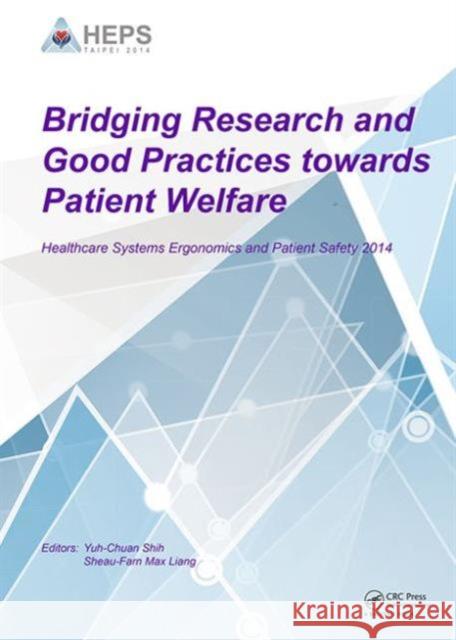Bridging Research and Good Practices Towards Patients Welfare: Proceedings of the 4th International Conference on Healthcare Ergonomics and Patient Sa » książka
Bridging Research and Good Practices Towards Patients Welfare: Proceedings of the 4th International Conference on Healthcare Ergonomics and Patient Sa
ISBN-13: 9781138027169 / Angielski / Twarda / 2014 / 420 str.
Bridging Research and Good Practices Towards Patients Welfare: Proceedings of the 4th International Conference on Healthcare Ergonomics and Patient Sa
ISBN-13: 9781138027169 / Angielski / Twarda / 2014 / 420 str.
(netto: 712,69 VAT: 5%)
Najniższa cena z 30 dni: 730,42
ok. 22 dni roboczych
Bez gwarancji dostawy przed świętami
Darmowa dostawa!
Ergonomics is a human-centered discipline. This is particularly true for healthcare systems and patient safety where the human s well-being will undergo critical impacts if solutions are not properly designed and practiced. Effective handling of these concerns involves knowledge from healthcare work (e.g., shift work, patient handling, and medical teamwork), to safety research (resilience, medical process control, intensive care, surgery/anesthesiology, and patient involvement), and to more general issues such as community participation in public affairs.
To pursue the mission, the Healthcare System Ergonomics and Patient Safety (HEPS) commenced its first conference in Florence, Italy in 2005. Following the founding success, HEPS became an IEA-sponsored event and the series subsequently took place in Strasbourg, France in 2008, and in Oviedo, Spain in 2011. The three remarkable conferences have forged a world-class platform for researchers and practitioners from around the globe to exchange and disseminate the knowledge in HEPS.
This volume contains the selected papers presented at the Fourth International conference on HEPS, held from June 23 to 26, 2014 in Taiwan. The Fourth HEPS, organized by the Ergonomics Society of Taiwan (EST) and endorsed by the International Ergonomics Association (IEA), aims to consolidate the knowledge bridged between ergonomics research and healthcare practices for the safety and welfare of patients. Researchers, professionals, and practitioners in ergonomics and healthcare around the world have shared their wisdom, experience, insights, and visions on past, current and future efforts in healthcare systems ergonomics and patient safety.
The papers contributing to this book address the latest research, applications and practices in accordance with the theme of the conference, "Bridging Research and Good Practices towards Patients Welfare," and cover the following areas: "Aging and Healthcare System," "Healthcare, Mobil Application and Usability," "Safety, Hazards and MSDs," "Simulation, Modeling and Decision Making," "Environment and System Design," and "Human Factors and Product Design.""











